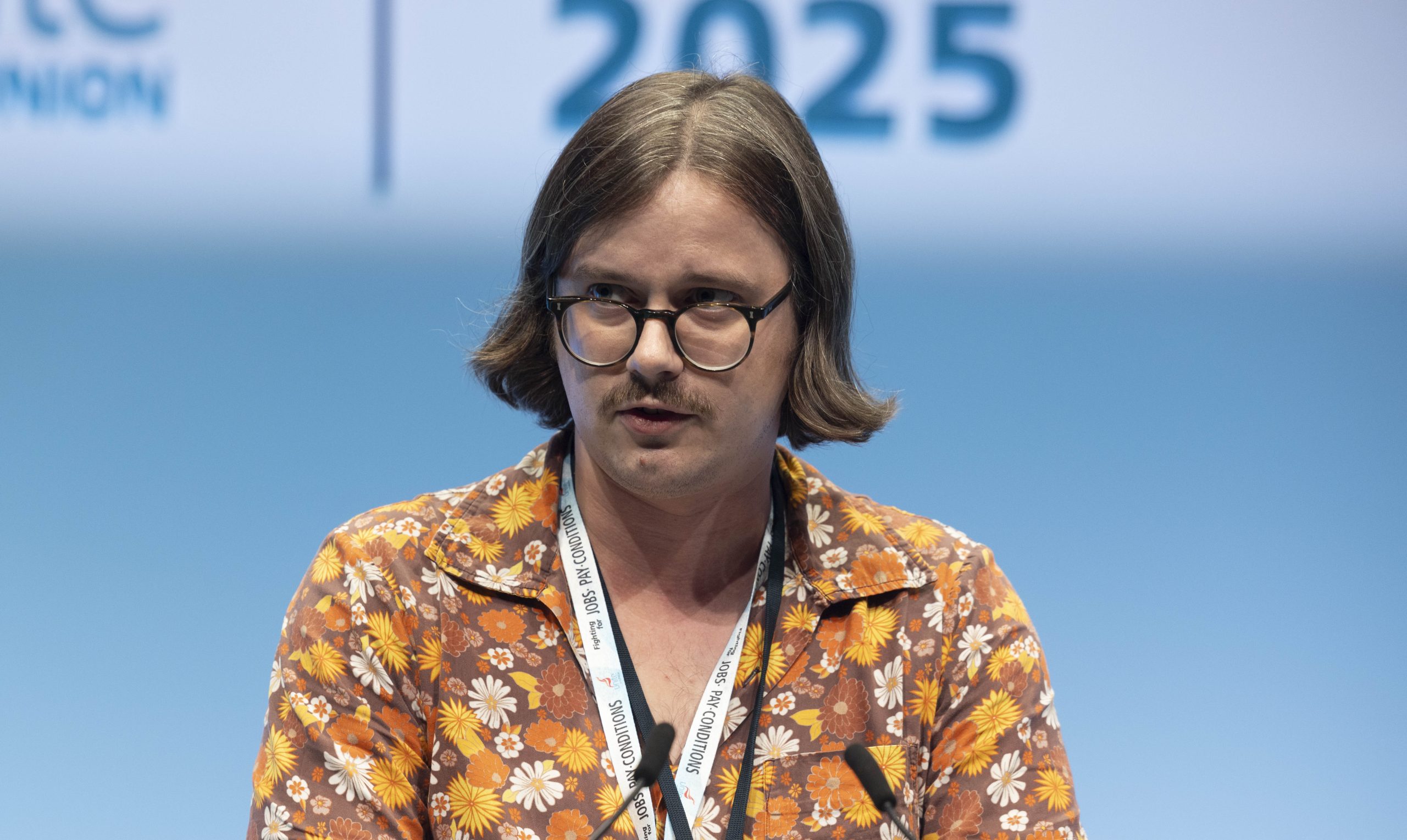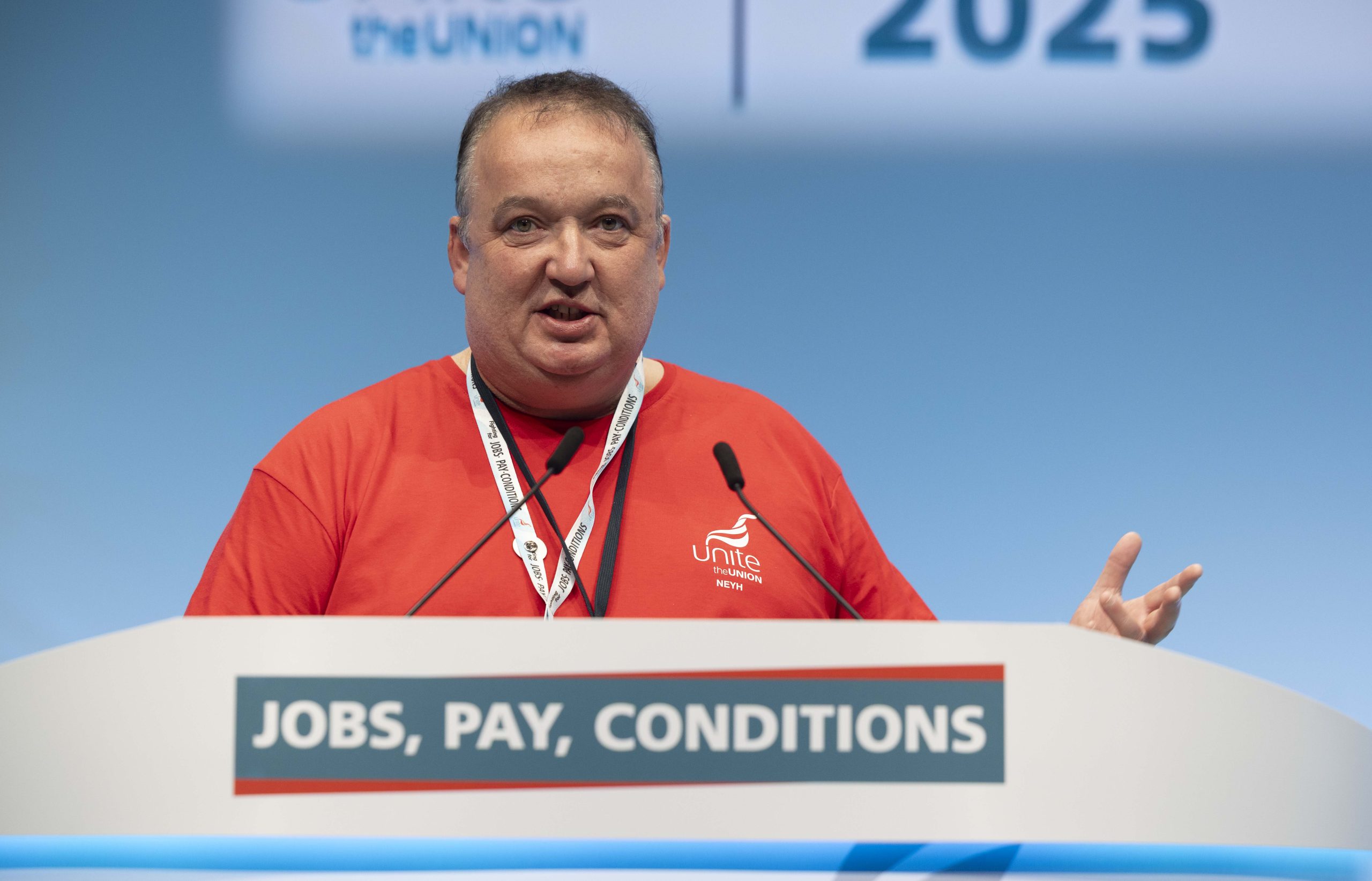Dyslexia-friendly lit call
Unite delegates call for Unite literature to be neurodivergent and dyslexia-friendly
Reading time: 5 min
Unite delegate Tracey Whittle of the South East region gave a stirring speech moving a motion on ensuring union literature is neurodiverse- and dyslexia-friendly.
Tracey told of her personal experience of the very policy conference at which she was speaking – where printed materials in green paper that she could read were not readily available.
“Right now I cannot fully participate [in this conference] because I was given a document – this one – and it’s in black and white,” she said.
“I can see the front cover,” Tracey added, pointing to a coloured page. “But this” – the inside in black and white – “is a blur.”
“It’s as if the people with glasses took them off and attempted to read,” she told conference.
“I’ve been coming to this conference since 2017 and other conferences in between,” Tracey went on to say. “It was great this year to see a stack of these colours behind the desk. Unfortunately, there are many people in this room who I’ve spoken to who haven’t seen these copies, and do not know where they are, because they aren’t being signposted to have their accessible needs met.”
Tracey went on to say that her request to have coloured conference documents sent to her home before the conference did not happen.
“There are people sitting in this hall now, who have neurodiverse issues, especially when it comes to dyslexia, thinking to themselves, ‘I have no idea what I’m doing’. Because I’ve felt like that on many occasions,” Tracey concluded, as she called for support of the motion.

Afterwards, Unite delegate Will Bright of the South East region highlighted a personal experience with his mum, who did not receive a diagnosis of ADHD and autism for decades.
“My mother spent most of her working years not even conscious of the fact that she would benefit greatly from accommodations exactly like those outlined in this motion,” Will said.
He highlighted the likely conservative figures of neurodivergence and dyslexia.
“There are delegates in this room and members in our workplaces who do not have those diagnoses, despite the fact they’re neurodivergent,” he explained, highlighting the long waits for official diagnoses, and the people who could greatly benefit from accommodations they don’t yet know they need.
Several delegates with dyslexia intervened in the debate, sharing personal experiences of the difficulties they faced.
Unite delegate Caroline Farrall of West Midlands, who is dyslexic, explained how reading material in black in white is like having a torch shined directly in your eyes.
Meanwhile, Unite delegate Andrew Wheatley of the North West, who works as a software engineer, described his experience of building accessible websites. He also called for reps to be trained to ask for accommodations like coloured paper in their workplaces.
Unite delegate Kayleigh Quinn of Scotland highlighted how her child’s school has approached accommodating dyslexic students, like her son.
“Instead of buying [my son] special books, they bought the whole school books with yellow paper,” she explained. “Afterwards, all the children’s reading improved, and they were better at taking in information. So sometimes these changes we’re asking for neurodivergent people are a universal change that can help everyone.”

Unite delegate Paul Conway of the Northeast, Yorkshire and Humberside (NEYH) region shared how he had been kicked out of school at 13 because he was dyslexic, and how it felt when teachers belittled him for his disability. Paul received huge applause in the hall.
Unite delegate Daniel Smith of the South West region concluded with a moving speech about his own experiences with neurodivergence and dyslexia – and the hopes he had for the motion.
“Once we put our motion into place, it will release so many more people from the chains, everything that holds a neurodivergent person back,” he said. “For once we will be allowed to take off our masks, for once we’ll be allowed to take off our virtual makeup and be the person we can be.”
The motion was overwhelmingly carried.
By Hajera Blagg
Photos by Mark Thomas



